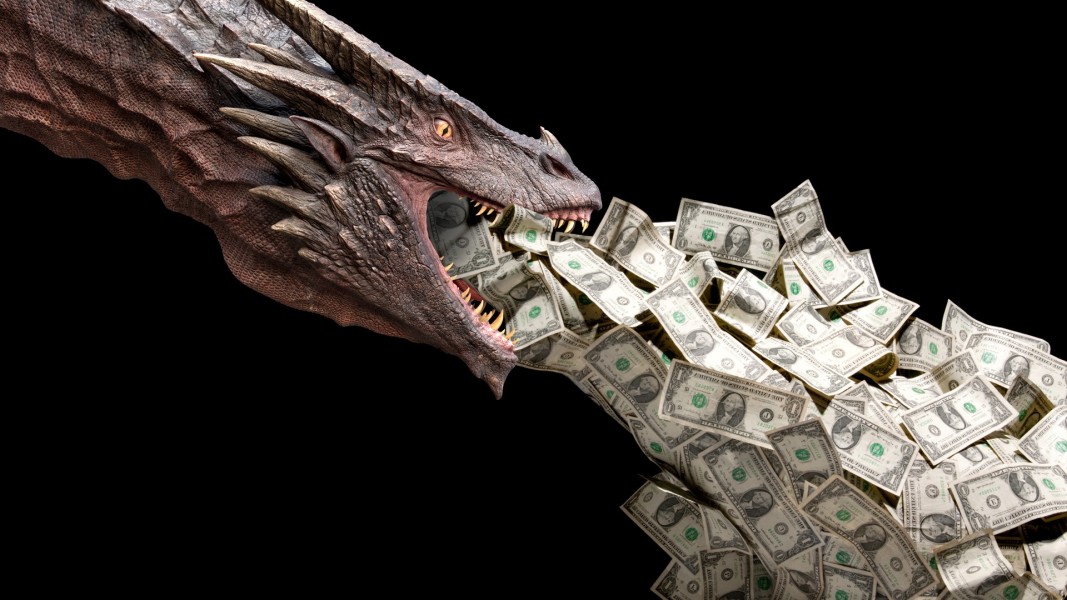
Forty years ago, a kid from down the street told me about this cool new game, Tunnels & Trolls. Something about his explanation kept eluding my grasp. Was it a computer game, like Pac-Man or Chuckie Egg? A board game, like Risk or Monopoly? No. There was no computer and, usually, no board.
Much of the game took part in the imagination, with the players assuming the roles of heroic warriors or powerful wizards. A “game master” described the setting, used a combination of dice and judgment to decide what was possible, and even improvised all the bit parts in the drama. It was a “role-playing game”, a radically new way of having fun. At the age of 11, I was spellbound.
Role-playing games are having a moment in the spotlight — a moment that offers valuable lessons to the rest of the economy. The oldest and by far the most popular game, Dungeons & Dragons (D&D), boasts tens of millions of players — including celebrities such as Vin Diesel, Ta-Nehisi Coates, Anderson Cooper, Stephen Colbert and Deborah Ann Woll. A big-budget movie is imminent, with D&D hoping to join Marvel and Star Wars as a major entertainment brand.
But with increasing power comes increasing responsibility, and the hobby has been convulsed in recent weeks by a question: who owns our game? The answer to that question is not obvious. D&D is owned by Wizards of the Coast, now a subsidiary of the toy-and-game behemoth Hasbro. Hasbro clearly owns the trademarks and many of the creative expressions of the game’s monsters, imaginary worlds and fantastical spells.
But the basic idea of a role-playing game itself, while closely associated with D&D and its 1970s creation by Dave Arneson and Gary Gygax, is uncopyrightable. My gateway to the hobby, Tunnels & Trolls, winked at its intellectual debt to D&D. The rules were different but the fundamental idea was the same.
More to the point, that fundamental idea means that the fun of the game is created in play. The players invent their own characters, while the game master will typically develop the scenario from scratch. To suggest that Hasbro owns what happens around the gaming table makes about as much sense as suggesting that a dinner-party conversation sparked by a New Yorker article is the property of Condé Nast.
Hasbro, of course, has not tried to claim ownership of gaming experiences. But it has made a clumsy lunge for a bigger slice of the pie. Back in 2000, Wizards of the Coast published an Open Gaming Licence (OGL), allowing other publishers to create material that was compatible with D&D. (Intellectual-property nerds suggest that this compatible material was always legal, but having it down in black-and-white was reassuring to the sprawling cottage industry of role-playing publishers.)
The OGL seemed irrevocable, but in January this year the journalist Linda Codega reported on a leaked proposal that suggested Hasbro was about to rip up the OGL and replace it with something far more onerous.
After a huge outcry from players and small publishers, Hasbro relented and even adopted a more standard and more permissive Creative Commons licence. Ten thousand semi-professional game writers breathed a sigh of relief.
While I have little sympathy for Hasbro, I do understand the impulse behind their ill-fated land-grab. To use an unlovely word, these games are hard to “monetise” — or as an economist would put it, they produce a huge consumer surplus.
For example, my all-time favourite game is Dragon Warriors. It cost me £10.50, which even for a teenager in the 1980s wasn’t a lot of money. For that, I acquired a game that 40 years later I still love and play. The publisher, Corgi, and authors, Dave Morris and Oliver Johnson, benefited financially from my purchase of the game — but their gain was tiny compared with mine.
Hasbro does a better job of squeezing money out of gamers, but faces the same challenge. You can download the rules free of charge, or pay about $25 for a starter set. For less than $200, gamers can own all the core publications in glossy hardback, and they need never spend another cent to enjoy a lifetime of gaming.
So what is a rapacious capitalist to do? The real money lies in repeat purchases. Football is hugely profitable, but not from the business of selling footballs. Instead, sell tickets to see famous people play, along with branded shirts, TV subscriptions and bets on who might win.
The table-top gaming hobby is smaller, but the same principle applies. Wizards of the Coast made a small fortune selling collectible cards for a card game, and it provides digital gaming tools on a subscription basis. Games Workshop, the game retailer that sold me my first copy of Tunnels & Trolls, dropped role-playing games in favour of wargames, a hobby conducive to the selling of countless miniature figures.
In games, as in so many other parts of life, the good stuff is free (or nearly so) and businesses make money selling us the accessories. From internet search to penicillin to the flush lavatory, the world is full of products that are of huge value but which cost very little. It’s reason to be grateful, and watchful too: right now, someone, somewhere is trying to figure out how to sell you a monthly subscription to your own toilet.
But watchfulness can work. Hasbro’s attempt to squeeze more money out of gamers has alerted younger players to something we grognards have been insisting on for decades: we own the games. Once you’ve grasped the idea of a role-playing game — as you might once have learnt the idea of football or a conversation — you don’t need anything expensive to keep playing for ever. You just need some friends and some imagination.
Tim Harford’s new book for children, ‘The Truth Detective’ (Wren & Rook), is out on March 15
Follow @FTMag on Twitter to find out about our latest stories first







